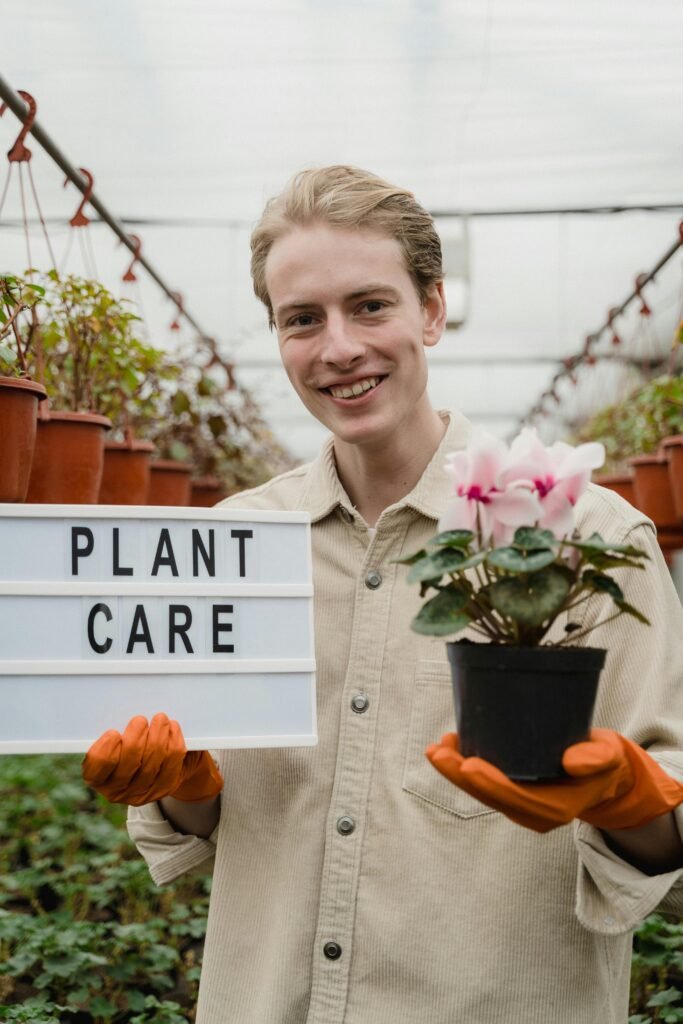I have a beautiful garden from my childhood. That’s why I take care of many plants in my garden. Every day, I research something new to aid in my plants’ growth. Today, I’ll share with you some useful household items that can aid in plant growth.
Now, let’s start…
- 1. Wood Ash

Wood ash has a high alkaline content, making it great for neutralizing acidic soil. To determine if your soil could benefit from an application of wood ash, first purchase a soil test kit at any garden center and test a small sample of soil from your garden beds. Before you add any ash to your garden, make sure it is completely cool to the touch.
- 2. Bananas

Chop up banana peels, then bury them in the soil when you plant tomatoes, rose bushes, or green pepper plants. The potash and phosphorus content in the peels will enrich the soil and strengthen your plants.
- 3. Compost Tea

A strong dose of compost tea can work wonders to improve the vibrancy of your plants. If you already have a compost pile, there’s a benefit to taking the time to brew it into a liquid solution bursting with beneficial microorganisms.
- 4. Club Soda

What makes club soda more nutritious for plants than tap water? Carbonated water contains macronutrients, including carbon, oxygen, hydrogen, phosphorus, potassium, sulfur, and sodium, all of which are beneficial for your greenery.
- 5. Aquarium Water

When it’s time to change the water in your fish tank, consider pouring the old water out on your plants. The waste and bacteria in aquarium water may be harmful to fish, but they are beneficial to plants. Just make sure to use freshwater only, not salt water, and apply it only to ornamental plants, not edible ones.
- 6. Coffee Grounds

Old coffee grounds have many uses around the house, but they’re particularly effective as plant boosters, thanks to their calcium, potassium, nitrogen, and phosphorus content. Although using coffee grounds in the garden won’t acidify your soil, acid-loving plants like rose bushes and azaleas will still benefit from their presence. Scatter fresh grounds lightly at the base of your plant or add them to the compost pile, where they will mix with other food scraps and leaves to create rich soil.
- 7. Eggshells

Because of their rich calcium content, eggshells should be tossed in your garden, not in your trash bin. Rinse them, crush them, and add them to plants like tomatoes that are often plagued by calcium deficiency. Or, start seedlings in eggshells that have been carefully halved and rinsed. When the seedlings are big enough to be transplanted, plant them right in the ground, shell and all; the shell will biodegrade over time.
- 8. Tea Leaves

Used tea leaves contain the three nutrients you need for good fertilizer: nitrogen, potash, and calcium. Sprinkle them at the base of your plant for a budget-friendly boost of nutrients.
- 9. Grass Clippings

Adding a thin layer of grass clippings to your vegetable garden can prevent weed growth and help plants retain moisture. Apply no more than one-quarter inch of grass mulch; adding too much could inhibit water from passing through. Grass clippings that are full of weed seeds should be composted rather than applied directly to your garden—the heat from a properly maintained compost pile will kill the weed seeds.
- 10. Aged Cow Manure

Aged cow manure, also known as well-rotted manure, is rich in nutrients that plants love and does a great job of retaining moisture. Just make sure not to use fresh manure since it’s too strong for most plants. Aged manure looks very similar to peat, with a dark crumbly composition that’s odorless and has a consistent appearance throughout. It can take anywhere from a few weeks to a year for manure to be considered aged—it ages fastest in hot climates. Apply a 1- to 2-inch layer across your garden beds and watch them thrive.

